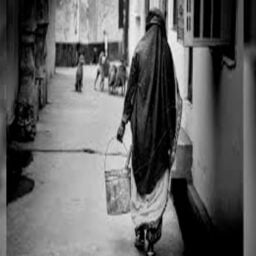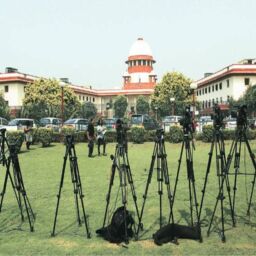INTRODUCTION
“An idea put a wall of separation between the relations, and an ideal will deteriorate it to dust”
– SARAH MOORE GRIMKE
The Permanent commission should be granted to women or not? Guidelines issued by the government should be executed or not? Have all walls to gender justice been lowered? Do we still stereotype women for certain professions?
Gender inequality and conception has always been hot and trendy content in India. These conceptions always produce hurdles for women and the third gender. Lately, a supreme court in a corner judgment named [1]The Secretary, Ministry of Defense vs Babita Puniya & Ors. Granted endless commission in 10non-combat service units.
The Meridian of a revolution
This morning of this change can be traced back to when the women officers ultimately linked the inequality between the virile and womanish officers in the Fortified forces. Both virile and womanish officers decided for an SSC, but after completion of 14 times, virile officers were granted to conclude for a PC, whereas womanish officers were discerned against by not being granted that subvention. This trend was largely discrimination. It led to an enormous number of conducts which in turn brought this necessary change in the field of defence. The bar played a vital part in interpreting this issue in the correct direction.
HISTORY
In the time 1888 during British rule, the part of women in the army began when ‘Indian military nursing service was set up. Throughout 1914-45 Indian army nurses in world war I (1914-18) and World War II (1939-45) where British army nurses were either failed or were declared missing in action. Noor Inayat Khan was a British heroine of World War II accredited for her service as the special operations superintendent. There were women force under Subhash Chandra Bose called as rani of the Jhansi troop.
Under the army act of 1950, women weren’t eligible for commission except in similar departments specified by the government. In 1958 army medical fraternity was the first-ever unit of the Indian army to grant women regular commission induction women had been started in 1992 when the government instated women in the picky on-combat branches. In 2008 government extended it into two different branches –
Army Educational Corps and Judge Advocate General
The Delhi high court granted the endless commission to women altogether branches but the govt appealed again and thus the matter came in February this time. It’s applicable to say this government permits the endless commission to women altogether branches but the offer was not executed retrospectively. It provides an endless commission to new SSC officers in 8 combat places. This inferred that the massive number of girls officers still serving as a brief service commission is not eligible. As these officers could only serve 14 times within the Indian army, harmonious with a recent return of officers, 1600 are women serving within the army.
JUDGEMENT
The division bench of Dr. Justice D.Y. Chandrachud and Justice MR Shah questioned the presumption given by the govt and express that they are fixed in stereotypical sundries of gender places, still, it’s a transparent violation of composition 14 of the Indian constitution. He also mentioned that although composition 33 did leave restrictions on abecedarian rights in dogfaces because it mentioned it’s frequently confined only to a particular extent to make sure the right discharge of duty and conservation of discipline. The significance of this case lies in the fact that the annuity of endless commission of women officers was outward neutral but indirectly discrimination. It marks the primary time that the Supreme Court has held indirect discrimination as a violation of the Indian constitution. The Supreme Court reached further and articulated a necessary model for discrimination and equality. It drew a difference between intention and effect, how discrimination passed thanks to an existent’s acts and the way it had been portrayed through the impersonal workings of an establishment.
SUGGESTION
The service should not be a testbed for gender. Women should tend discretion to travel for any post within the military still the norms for reclamation, training, post-induction, etc. should not be lowered. The pellet of the adversary is not unsexed acclimatized. Women should be viewed as members of the army first, women second. Virility shouldn’t be a factor, but quality, skill, and effectiveness should be the factors affecting qualification and elevations. Patriarchy is a longstanding issue that has claws in all aspects of life but with proper legal places, it can be crushed.
CONCLUSION
The Judgement shall always be remembered together of the simplest corner judgments which heralded gender equivalency in Defense, the Army, the Navy, and thus the Airforce. After this corner order, the trail to gender equivalency has been remarkably heralded which shall confirm that ladies are not any more denied endless commission or denied command posts. It ensures women’s position within the Indian army and triumphs in gender justice. It removed the mask restrictions assessed on women’s services for holding high-rank posts. The idea of a progressive Army, accepting women at par with men is not a commodity that can be executed in a day but with the favourable judgment by the Supreme Court can be considered a good launch. It has been a gradual process starting from the prolusion of women into the Army in 1992, catalyzed by the judgment regarding authorization of Permanent Commission in the Army for women officers.
Gender equality values must be inculcated amongst the people and in a nation like India with a strong foundation and an ironclad constitution that advocates anon-discriminative society, it can be an easy task. Although the judgment of the Supreme Court is delayed response from the military will add woes of girls’ officers who waited for years to urge their due.[2] Recently the Supreme Court allowed the entry of girls’ officers through NDA (National Defense Academy) a choice has been taken at the very best level of forces and government that ladies are getting to be inducted for Permanent Commission through the National Defense Academy, the choice was taken late evening yesterday,” ASG Bhatti submitted. The Bench said it’d slightly a bit like the Defense forces to wish a “more pro-active approach towards gender equality.
We mustn’t forget that those women officers who have remained in service are those with the tenacity to hold on and to meet the exacting norms of performance of which the Indian Army has made her citizens proud.
Author(s) Name: Srija Singh (Amity law school, Noida)
Reference:
[1] Devansh Sharma, ‘Secretary Ministry of Defence v. Babita Puniya’ (Law Times Journal,
May 2, 2020) <http://lawtimesjournal.in/secretary-ministry-of-defence-vs-babita-puniya/>>
accessed 22 October 2021
[2] Aneesa Mathur, ‘women will be inducted in NDA for permanent commission centre tells
Supreme Court’ (India Today, 8 September 2021) <https://www.indiatoday.in/law/story/army-navy-agree-on-permanent-commission-for-women-1850493-2021-09-08>> accessed 20 October 2021
















